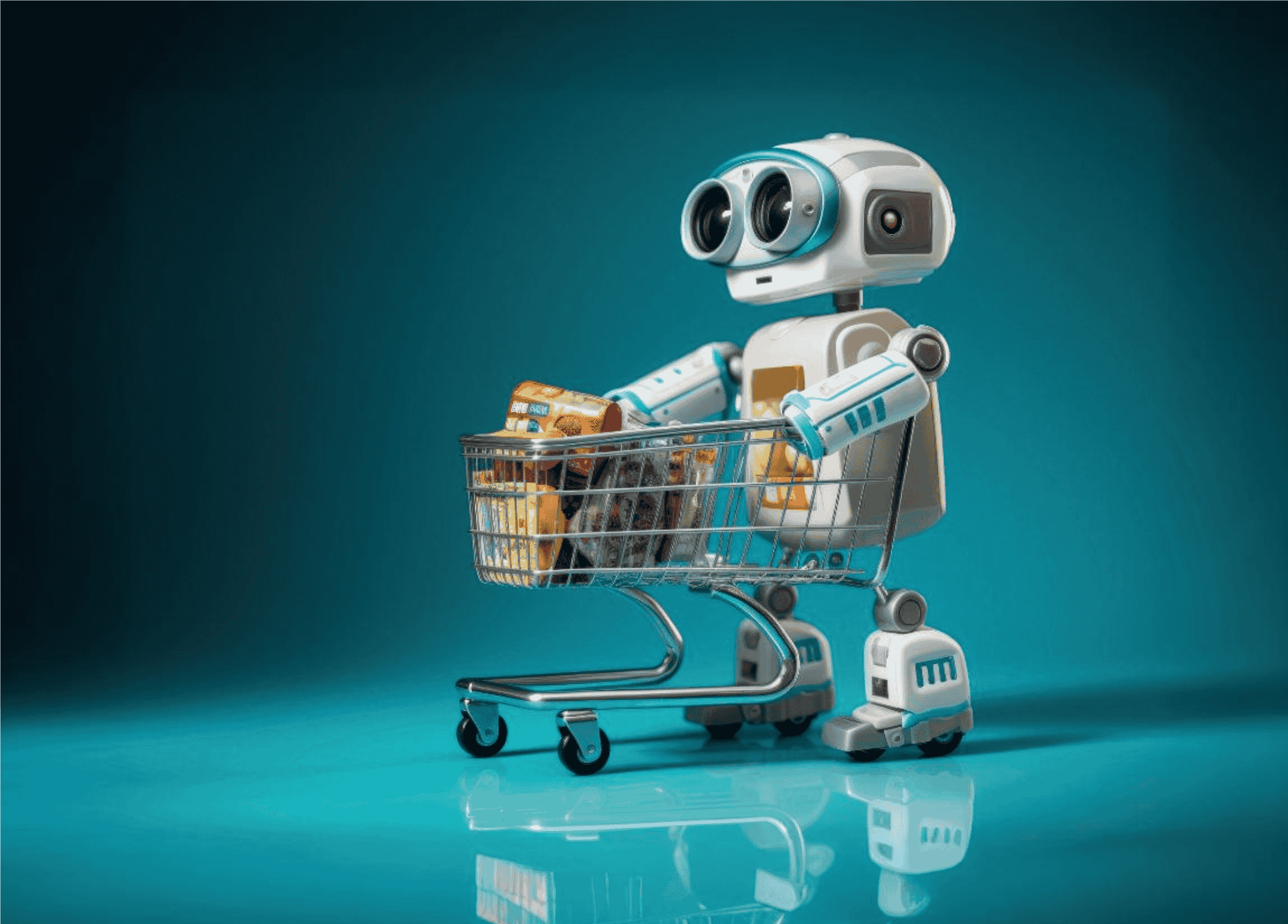A few years ago, AI felt like something out of a sci-fi novel—an exciting but distant future filled with self-driving cars, robotic assistants, and intelligent systems capable of making decisions without human intervention. Fast forward to today, and AI is no longer just a futuristic concept. It’s here, and it’s changing the way businesses operate at an unprecedented pace.
But AI transformation isn’t just about adopting AI tools; it’s about integrating AI into the core of business strategy. Companies that approach AI strategically—using it to optimize processes, drive innovation, and scale faster—are the ones seeing the biggest impact. Those who delay risk falling behind as AI-driven competitors move faster, work smarter, and adapt quicker.
So, what exactly is AI transformation, and how can businesses harness its power to drive real, measurable growth? Let’s break it down.
What is AI Transformation?
AI transformation represents a fundamental shift in how businesses operate, innovate, and scale. Often referred to as AI digital transformation, this approach goes beyond traditional digital upgrades by embedding AI into core business processes to streamline operations, improve decision-making, and unlock new growth opportunities.
By leveraging technologies such as machine learning, deep learning, computer vision, natural language processing, and generative AI, companies can:
- Automate repetitive tasks, allowing teams to focus on strategic initiatives
- Modernize outdated systems and enhance IT efficiency
- Use predictive analytics to drive smarter, data-backed decisions
- Continuously refine processes by learning from real-time data
- Elevate customer interactions through AI-driven personalization and intelligent chatbots
Unlike conventional digital transformation, which primarily enhances existing workflows, AI transformation introduces entirely new methods of working, making businesses more agile, adaptive, and competitive. A study by the IBM Institute for Business Value found that organizations integrating AI into their transformation strategies report higher efficiency, increased profitability, and stronger business performance.
However, successful AI transformation requires more than just technology. It demands a well-defined strategy, an organizational culture that embraces AI-driven decision-making, and the ability to scale AI solutions effectively. Companies that prioritize AI today will not only optimize their operations but also position themselves as industry leaders in the AI-driven future.
The Business Impact of AI Transformation
One of the most significant benefits of AI transformation is operational efficiency. AI-powered systems handle complex workflows, automate routine processes, and optimize resource allocation, reducing delays and manual intervention. Businesses can streamline supply chain management, accelerate financial reporting, and enhance customer support without increasing operational overhead.
AI also enhances data-driven decision-making by extracting insights from vast amounts of information in real time. Instead of relying on historical trends or manual analysis, businesses can use AI to detect patterns, forecast demand, and adapt strategies quickly. This level of intelligence allows leaders to make more informed choices, mitigating risks and capitalizing on new opportunities faster than competitors.
From a financial perspective, AI transformation leads to cost reductions by minimizing errors, eliminating redundant work, and automating labor-intensive tasks. In industries where compliance and accuracy are critical, AI-driven processes ensure regulatory adherence while reducing the costs associated with human oversight and corrections.
Beyond internal improvements, AI is reshaping customer experiences by delivering hyper-personalized interactions, predictive recommendations, and seamless service. AI-powered chatbots, automated customer support, and smart recommendation engines provide instant, data-driven responses, leading to higher engagement and satisfaction. Businesses that integrate AI into their customer interactions see stronger loyalty and increased revenue.
Perhaps the most critical long-term advantage of AI transformation is business scalability AI-powered systems adapt to increasing workloads without compromising performance, allowing businesses to expand without proportionally increasing costs. Whether it’s managing larger volumes of transactions, processing complex data sets, or automating cross-functional workflows, AI provides the flexibility and resilience businesses need to scale efficiently.
A great example of AI transformation in action is our work with Pharmasift. Their team helps pharmaceutical companies get FDA approval for promotional materials, but the process was slow, manual, and required extensive back-and-forth revisions. They needed a way to speed things up without compromising compliance.
We built an AI-powered compliance system that predicts potential FDA objections before submission and provides clear guidance on how to address them. This meant fewer revisions, faster approvals, and a more efficient workflow. As a result, approval rates went up by 35%, operational costs dropped by 20%, and team productivity improved by 45%. By automating a traditionally tedious process, Pharmasift can now help clients get their materials approved faster while maintaining full regulatory compliance—proving just how powerful AI can be in transforming business operations.

How Businesses Can Successfully Implement AI Transformation
Adopting AI transformation requires more than just deploying new technology. It takes a structured approach to ensure AI integrates seamlessly with business operations, enhances efficiency, and delivers measurable results. Companies that succeed in AI transformation follow a phased and strategic approach rather than trying to overhaul their entire system overnight.
Assess Readiness Before Diving In
Before implementing AI, businesses must evaluate their current infrastructure, data quality, and overall AI maturity. Not all organizations are ready to scale AI immediately, especially if they lack structured data, integration capabilities, or a clear use case. A readiness assessment helps identify which areas can benefit the most from AI and ensures the right foundation is in place.
Start Small and Scale Gradually
AI transformation is most effective when businesses begin with small, targeted implementations before expanding. Instead of applying AI across every department at once, companies should pilot AI solutions in high-impact areas—such as automating customer service responses, optimizing inventory management, or improving financial reporting. Once proven effective, AI can be scaled across larger, more complex business functions with confidence.
Choose the Right AI Solutions
Not all AI tools are created equal. Some businesses can leverage existing AI-powered platforms, while others need custom AI solutions tailored to their industry or operational challenges. Choosing the right AI approach is critical—off-the-shelf AI tools work well for general automation, while custom AI models provide greater control, adaptability, and competitive advantage. Businesses must carefully evaluate which solution aligns with their long-term goals, scalability needs, and integration capabilities.
Work with AI Experts for Seamless Implementation
AI transformation is a complex process that requires technical expertise, industry knowledge, and a clear execution strategy. Many businesses struggle with AI adoption due to a lack of in-house AI specialists or integration challenges. Partnering with AI experts like Code District ensures that AI solutions are not only implemented smoothly but also optimized for long-term efficiency and business impact. By working with specialists, companies can navigate challenges such as data structuring, AI model training, compliance, and performance scaling without disrupting operations.
AI Isn’t Optional
Businesses that treat AI as an option rather than a necessity are already falling behind. AI-driven companies move faster, make smarter decisions, and scale effortlessly, while those relying on outdated processes struggle to keep up.
At Code District AI isn’t just something we build for our clients—it’s woven into our entire development process. From the earliest stages of our Software Development Life Cycle (SDLC) to final deployment, we leverage AI to create solutions that are faster, smarter, and designed for real impact. Whether it’s automating repetitive workflows, optimizing complex decision-making, or enhancing customer experiences, we don’t just apply AI as an afterthought—it’s a core ingredient in every solution we craft.
The reality is simple: businesses that embrace AI today will define the market tomorrow. If you’re ready to stop playing catch-up and start leading with AI-driven innovation, let’s build something groundbreaking together.
Reach out to us and let’s create AI-powered solutions that move your business forward.










